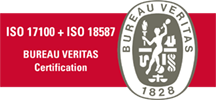How to choose a translation company
Selecting the right translation company is a strategic decision that affects quality, timelines, legal risk, and brand reputation. Below is a practical guide with a checklist, questions to ask, and signals to verify—so you can choose confidently. For examples of governance and culture, see M21Global’s The DNA of M21Global and 12 Pillars.

Table of Contents
What “quality” really means in a translation company
Quality is the sum of process, people, and proof. Look for independently verified standards such as ISO 17100 and ISO 18587, which define requirements for translation and MT post-editing, respectively. M21Global details its approach and certification on the Certified Translation Company page, and the culture that sustains those processes in The DNA of M21Global.
The translator’s path: native expertise, domain fit
Insist on native-target-language translators with proven domain expertise. Review how vendors recruit and evaluate linguists—M21Global’s team and philosophy are explained in Meet M21Global and operationalized via the 12 Pillars.
Pricing and ROI: transparent, scoped, and defensible
A low price that introduces rework isn’t cheaper. Ask for a scope that includes translation + independent review where applicable (per ISO 17100), glossary creation, layout handling, and QA. See M21Global’s reasoning in Why choose a translation company and service framing on Translation Services for context.
What drives costs in a translation company
- Language pair & subject complexity
- Review depth (e.g., bilingual revision, technical QC)
- In-scope DTP or file engineering
These cost drivers are captured in standardized processes (cf. ISO 17100) and the vendor’s internal commitments (see 12 Pillars).
Workflow and deadlines: from quote to delivery
Time is a quality attribute. Confirm quotation SLAs, phased QA, and risk controls (backup reviewers, surge capacity). M21Global outlines speed and reliability in The DNA of M21Global and the promise behind its 12 Pillars. If your teams currently self-translate, this explainer—Why choose a translation company—covers the hidden costs.
Service levels you can compare
Define deliverables explicitly: translation + review, terminology management, change logs, and formatting. For certification specifics, see Certified Translation Company.
Security and compliance: protect IP and personal data
Check for confidentiality agreements, data-handling policies, secure infrastructure, and limited data sharing with tools/providers. Ask for written policies aligned with standards and for evidence of annual audits (see Certified Translation Company and process culture in The DNA of M21Global). For post-editing requests, align with ISO 18587.
Vendor selection checklist — compare your options
Use this quick table when shortlisting.
| Criterion | What good looks like | Where to verify |
|---|---|---|
| Standard | ISO 17100; documented review | Certified Translation Company, ISO 17100 |
| Review | Second linguist, native target | 12 Pillars |
| People | Native specialist translators | Meet M21Global |
| Speed | Quote SLA, on-time stats | The DNA of M21Global |
| Scope | Glossary, DTP, QA | Translation Services |
| Rationale | Business case to outsource | Why choose a translation company |
Questions to shortlist a translation company
- Which ISO standards do you follow and how are audits performed? Evidence?
- Who translates and who reviews? Are both native in the target language?
- How do you manage terminology and style guides?
- What’s included in the quote (review, DTP, engineering)?
- What’s your confidentiality model (access, storage, retention)?
FAQ
Q1: How is ISO 17100 different from internal QA?
A1: ISO 17100 formalizes resources, two-step review, and project controls, so quality is systematized beyond ad-hoc checks. See ISO 17100 and M21Global’s Certified Translation Company.
Q2: Do I always need a review?
A2: For professional use, yes—especially legal/technical content. Review is core to ISO 17100. See 12 Pillars.
Q3: Can in-house bilinguals replace a vendor?
A3: They rarely match throughput, tooling, or independent review, and diversion from core roles adds hidden costs; see Why choose a translation company.
Q4: What about MT + post-editing?
A4: It can be appropriate under controls defined by ISO 18587 and with expert post-editors; discuss scope on Certified Translation Company.

